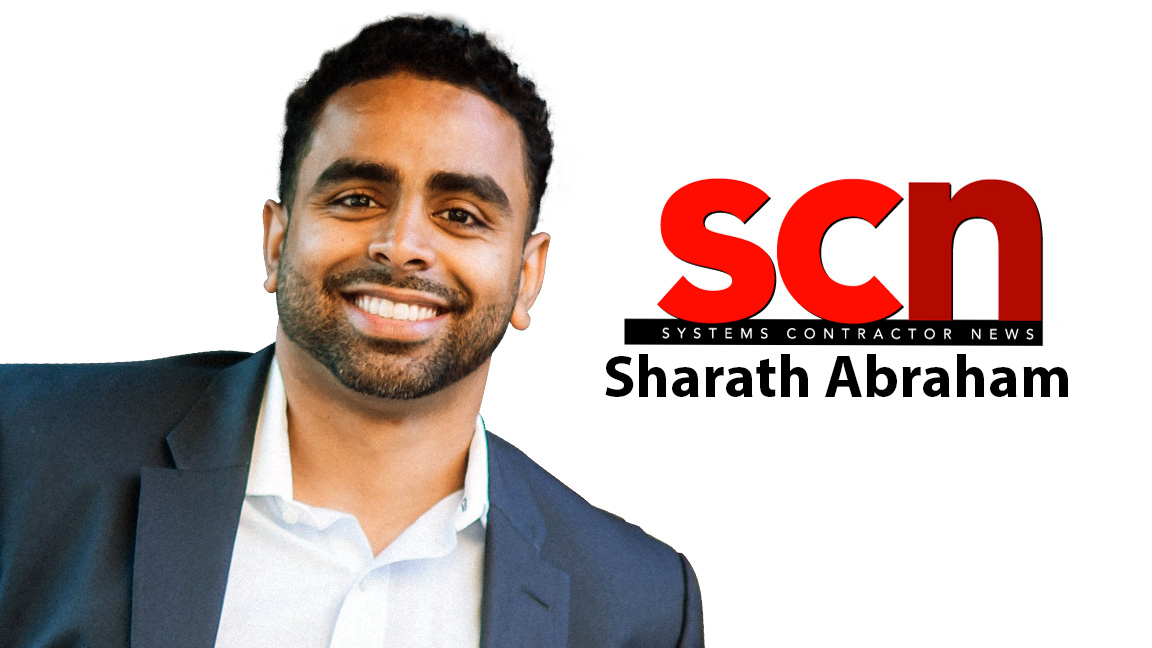Viewpoint: Why It's Time for Pro AV to Take Digital Twin Metaverse Technology Seriously
How can virtual replicas of a physical systems help the industry?

A daily selection of features, industry news, and analysis for AV/IT professionals. Sign up below.
You are now subscribed
Your newsletter sign-up was successful
As the world continues to evolve, how we interact with the environment and each other has also changed. With the rapid rise of digital technology, the way we work, communicate, and entertain ourselves has shifted to digital spaces. And with the metaverse becoming the next frontier in digital technology, the Pro AV industry needs to recognize the potential of the digital twin as a critical component of this new paradigm.
[Editorial: Can NDI Become Ubiquitous?]
Digital twin technology is a virtual replica of a physical system that can simulate, monitor, and optimize performance. The digital twin can simulate anything from a building to a factory floor to an entire city. With the ability to affect physical systems in real time, it has become a valuable tool for many industries.
Immersion and Optimization
The AV industry has always been at the forefront of using technology to enhance how we experience our environment. From the earliest movie theaters to the latest videoconferencing tools, we have created immersive experiences that bring us closer to the content we consume. With the rise of the metaverse, our industry must embrace the digital twin as a critical technology to enable us to create new immersive experiences.
One of the most exciting possibilities of the digital twin in the Pro AV industry is its ability to create hyper-realistic environments. By creating digital twins of real-world spaces, Pro AV can help clients develop immersive experiences and revolutionize how we interact with the world around us.
Investing in learning opportunities around digital twin skills for individuals will help organizations stay ahead of the curve in an increasingly competitive and fast-moving business environment.
An example would be utilizing digital twin technology to create virtual tours of physical spaces, allowing users to explore a location in detail without multiple site visits. Many real estate, construction, and architectural firms have already been utilizing this, so it would make sense for the Pro AV industry to work with these groups using the same technologies.
Another important use of the digital twin is its ability to optimize AV systems. With the ability to simulate physical systems in real time, the digital twin can test and optimize AV systems before they are installed in the physical world. This can save time and money by identifying potential issues before they occur and improving the system’s overall performance.
A daily selection of the top stories for AV integrators, resellers and consultants. Sign up below.
For example, many AV vendors provide simulations on their websites for speaker and lighting configurations. The next evolution would be to include that information in a digital twin of the entire AV system—and run multiple simulations so the client can better understand the system and its capabilities.
Practical Applications
The digital twin can also be used to enhance the way we communicate with each other. With the rise of virtual meetings and events, the digital twin can be used to create more immersive and engaging experiences.
[Beyond the Tech: Cutting Corner Concerns]
Consider the increase in remote working and distributed teams working with clients unable to be on site. A digital twin of the system can be utilized to allow stakeholders to see and interact with the digital twin to ensure everyone is on the same page and reduce the risk of miscommunication. Plus, this would be a way cooler meeting than a Teams or Zoom call reviewing CAD files.
As the use of digital twins continues to grow as a metaverse technology, it will likely become necessary in the Pro AV industry. Plus, we all know tech doesn't stand still: Digital twins will become more advanced and sophisticated. Now is an excellent time to start thinking about how companies and individuals in our industry can better understand how it can be used collaboratively to provide better service to all our clients.
At this time, for example, there is much interest in IOT sensors for buildings. Although IOT devices aren’t in the old-fashioned AV playbook, I believe AV companies need to ramp up their education and offer additional services around IOT hardware and installation. Companies and individuals in the AV industry need to stay updated to be better positioned to take advantage of new opportunities as they arise.
Ready or Not
As with all technologies, there are disadvantages, and digital twins have some drawbacks. They are complex systems requiring specialized expertise to design, develop, and maintain, so this can be a challenge for companies that currently need more technical resources.
Based on the user’s level of expertise, learning to use these systems effectively will take time and resources. For example, a CAD technician will be able to understand the complexity of digital twins faster than a new technician. Digital twins also require a significant investment in technology, hardware, and software, which can be a barrier to entry for smaller companies or those with limited budgets.
[Viewpoint: Build Your Best Corporate Studio]
The digital twin is a metaverse technology that the Pro AV industry needs to take seriously. Its ability to create hyper-realistic environments, optimize AV systems, and enhance communication and collaboration makes it an invaluable tool in the age of the metaverse.
Investing in learning opportunities around digital twin skills for individuals will help organizations stay ahead of the curve in an increasingly competitive and fast-moving business environment. This will allow organizations and the Pro AV industry to adapt to changing market conditions and position themselves for long-term success. By embracing the digital twin, we can create new and exciting immersive experiences for our clients to bring us closer to the content we consume.
Sharath Abraham, CTS, is an experienced technical professional with a demonstrated history of working with products that are designed and built to work together as a complete system for the best end user experience. He is a global strategy manager at Jabra. Contact him at sabraham@jabra.com. Abraham was featured in the 2020 class of SCN: The Nine and holds a master’s degree in computer information systems.

